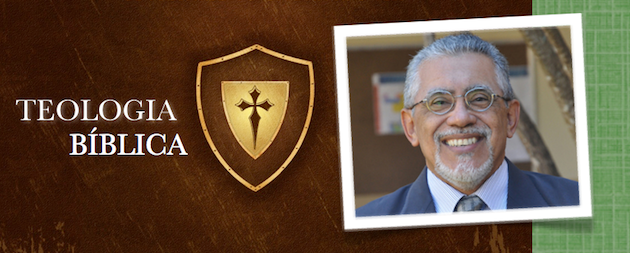The nature of the problem
The existence of evil, in its various forms, but especially in those seemingly unjustified, poses logical and psychological difficulties in terms of the existence and/or character of God.
- Although it is rarely raised by those who question the existence of God because of the presence of evil in the universe.
- The problem is not a matter of degree.
- But of mere existence.
? Bad is a difficult term to define, especially because of the limited nature of our knowledge and the lack of agreement on the perspective from which to try a definition.
In general, even fiery theists end up adopting an anthropocentric definition of evil, making it difficult for them to properly process biblical evidence.
On the other hand, a more theocratic definition closes the possibility of meaningful dialogue with the “atheists”.
In general, an event is understood as “bad?” (Or, if we want to add, bad?) Yes:
Bad morals. This category includes the evils that result from misuse of the ability to choose a moral agent. Includes specific acts of?Wrong? (lie, dishonesty, violence, destruction) to a greater or lesser extent.
Natural evil. Unlike moral evil, natural evil results from the functioning of natural processes, in which no moral agent can be held liable for the resulting damage. Classic examples include natural disasters such as hurricanes and tornadoes, earthquakes and tsunamis, landslides and floods, as well as devastating diseases such as leukemia and Alzheimer’s disease.
An important rating
Much of what is considered natural evils are, in fact, moral evils precipitated by negligence, greed or total human stupidity.
When provoked by the exercise of the will of moral agents, these evils are best described as moral evils, or at least hybrid, that is, natural evils exacerbated by moral errors.
Another way of saying this would be to classify as natural evils only those whose occurrence cannot be attributed to mere human moral agents.
A separate category is that of evil called dreadful, in which moral agents exacerbate violence, cruelty, inhumanity in the name of personal preferences or dislike.
Holocaust
Prestidigitation? Denying the reality of evil
Eastern and Western monoisms argue that there is only one reality and that evil is an illusion.
Responses to illusionism
The impression of the existence of evil is a universal persistence, how to explain this impression?
Is it a common sense test to totally deny each other’s sensory perception?This would make the perception of the pantheon very suspicious.
If evil is just an illusion, why is the pain it causes real on the most intimate level of human beings?
Atheism? Affirming the reality of evil and denying the reality of god
A famous syllogism (Epicure, Hume, etc. )
Atheism? Deny God’s goodness or deny ultimate reality.
Another syllogism
Atheism? There are other approaches used by atheists to propose the non-existence of God or the improbability of his existence.
God and evil are logically incompatible
God and evil are practically incompatible.
God could have created a world without the presence of evil.
Christian responses to atheism
Jay Adams illustrates an approach based on God’s sovereignty, based on Rom 9:17 (in the book The Grand Demonstration: A Biblical Study of the So-Called Problem of Evil, 1991), and arguing that the purpose of evil (and mercy)) is to reveal god’s nature.
Several other authors partly follow Leibnitz’s argument (he is the best of all possible worlds), suggesting that although he is not the best of all worlds, he is the best (and necessary) way to the best of the worlds (where even the possibility of as soon as he appears forever).
So that evil does not exist, God could
(a) have not created any world;
(b) have created a world without free creatures;
(c) have created a world where free creatures have not sinned;
(d) have created a world where free creatures have sinned.
The the theistic answer to the atheists’ assertion that scenarios (a), (b) and (c) are better than scenario (d) is that scenario (d) is the way for these free creatures to finally be definitively and forever. libre. de the presence and threat of sin and evil by redemption in which God Himself has experienced the greatest evil for his creatures.
Here the reality of God and evil is affirmed
Among several complete forms, the following stand out:
Dualism
Panenteism (or process theology)
Endism in various ways
Dualism? Good and evil in eternal opposition
First dualistic argument
Theistic response
Second dualistic argument
Theistic response
Panenteism? God is coextensive to creation
In panenteism, evil is inherent in matter, which is considered eternal or pre-existing.
Theistic response
Neo-theism? There are limitations self-imposed by God in the creation of morally free beings.
Theistic answers to neotheism
We must address the issue of evil from a platform of faith, and not just in response to the arguments of atheists. More needs to be said and more written from the scriptures.
It is not enough to point out the arguments of the atheists as a result of an emotional reaction to the existence of evil (although this factor seems predominant to me).
We must be careful not to be insensitive to real pain, while we try not to be complicit in mere dilettasome speculation.
We must treat exeggtically the claims of neotheism and the attitude of laissez-faire that it tends to produce.

